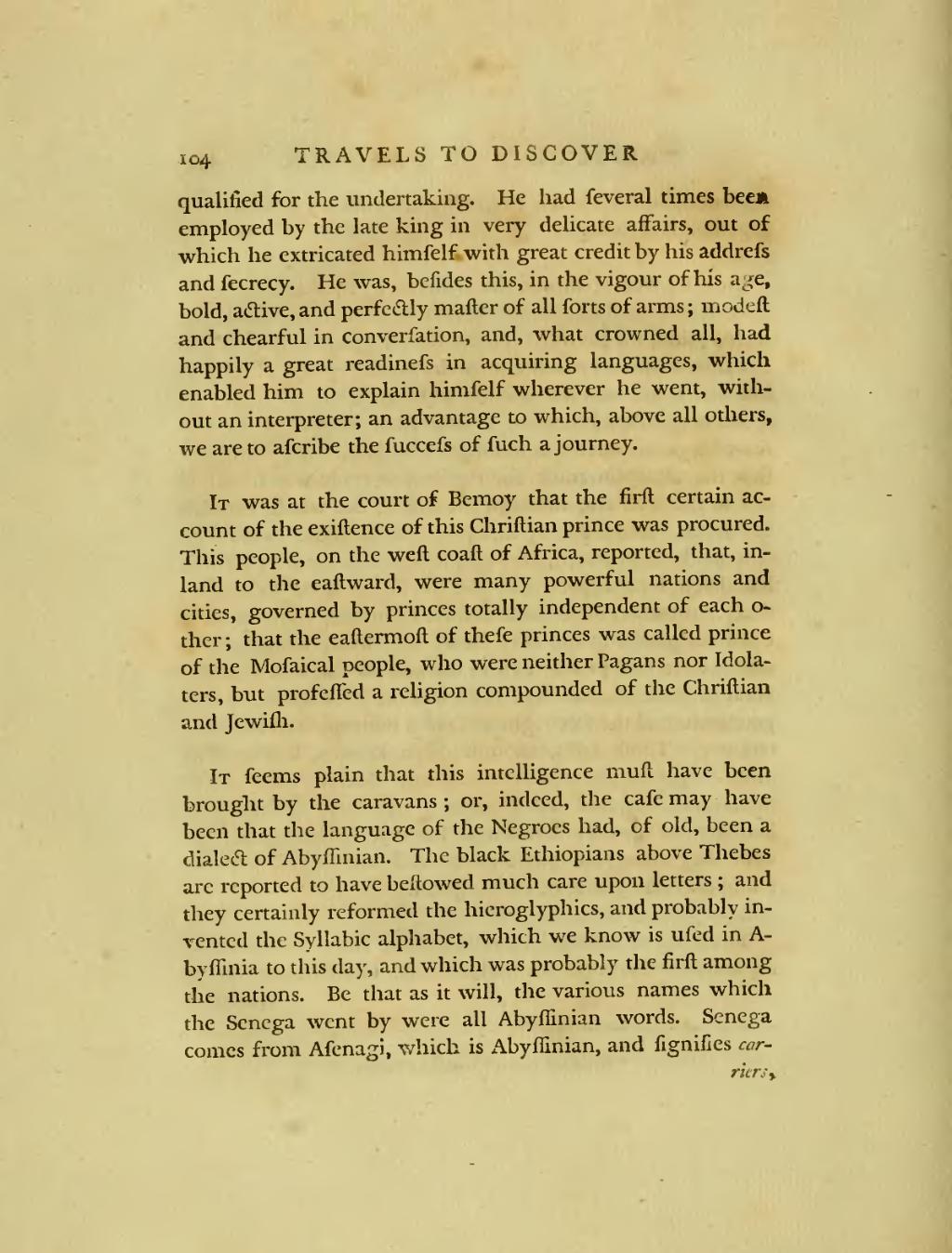qualified for the undertaking. He had several times been employed by the late king in very delicate affairs, out of which he extricated himself with great credit by his address and secrecy. He was, besides this, in the vigour of his age, bold, active, and perfectly master of all sorts of arms; modest and chearful in conversation, and, what crowned all, had happily a great readiness in acquiring languages, which enabled him to explain himself wherever he went, without an interpreter; an advantage to which, above all others, we are to ascribe the success of such a journey.
It was at the court of Bemoy that the first certain account of the existence of this Christian prince was procured. This people, on the west coast of Africa, reported, that, inland to the eastward, were many powerful nations and cities, governed by princes totally independent of each other; that the eastermost of these princes was called prince of the Mosaical people, who were neither Pagans nor Idolaters, but professed a religion compounded of the Christian and Jewish.
It seems plain that this intelligence must have been brought by the caravans; or, indeed, the case may have been that the language of the Negroes had, of old, been a dialect of Abyssinian. The black Ethiopians above Thebes are reported to have bestowed much care upon letters; and they certainly reformed the hieroglyphics, and probably invented the Syllabic alphabet, which we know is used in Abyssinia to this day, and which was probably the first among the nations. Be that as it will, the various names which the Senega went by were all Abyssinian words. Senega comes from Asenagi, which is Abyssinian, and signifies car-
